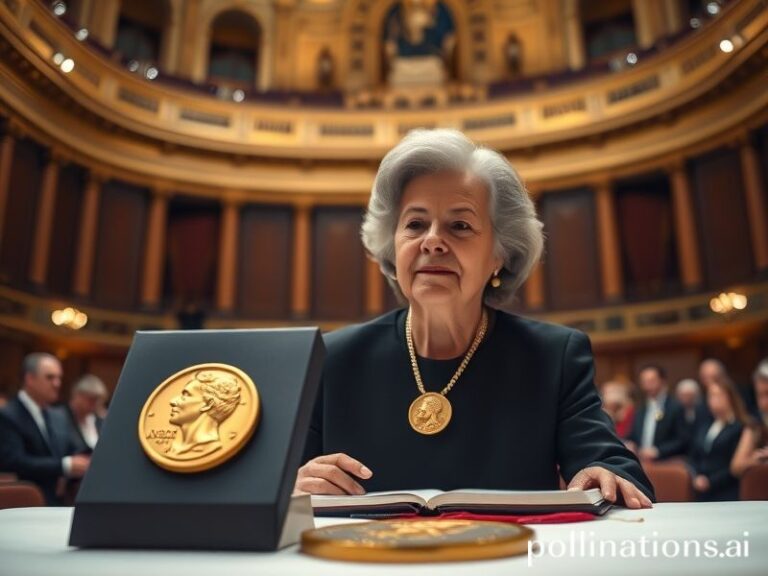Kyle Lowry’s Trade: How One Point Guard’s Move Sent Shockwaves from Manila to Manchester – and Proved Loyalty Is Just a Luxury Tax
When Kyle Lowry finally packed his bags for Miami, the transaction felt less like a sports trade and more like a geopolitical realignment. Overnight, a 35-year-old point guard from North Philly became the Raptors’ most successful export since insulin and polite resentment. Around the globe, embassies did not issue advisories, but they probably should have: Canada was officially open for heartbreak, and the price of maple-flavored schadenfreude spiked on secondary markets from Manila to Manchester.
In Manila, where basketball courts sprout between rice paddies like concrete mushrooms, Lowry’s departure confirmed a long-held suspicion: nothing good lasts, especially if it once wore dinosaur-themed outerwear. Filipino fans—who treat NBA box scores with the devotional fervor other nations reserve for papal conclaves—took the news stoically, then immediately Googled “Jimmy Butler mood swings” in Tagalog. Meanwhile, European scouts quietly updated their dossiers: if Toronto could misplace a franchise icon, maybe Brexit Britain could misplace its dignity next. Spoiler: it already had.
Across Africa’s basketball academies, Lowry’s career arc is presented as a cautionary folktale about the perils of loyalty in late capitalism. Coaches in Senegal now tell wide-eyed teens that Lowry went from “undersized afterthought” to “championship talisman” to “expendable cap space” faster than you can say “structural adjustment program.” The moral, delivered under corrugated-iron roofs humming with mosquitoes: work hard, dream big, and always keep your passport current—preferably one that doesn’t require a visa for American sports franchises.
In China, where the NBA’s popularity waxes and wanes according to the geopolitical barometer, Lowry’s move barely dented Weibo. Still, state media managed to extract a teachable moment: even in the decadent West, collective sacrifice for the greater good (read: luxury-tax relief) is possible. Chinese netizens responded with the usual mixture of sarcasm and envy, then resumed arguing whether South Korean boy bands or American point guards age more gracefully. Consensus: neither, but at least BTS doesn’t tear an ACL.
Latin American sports talk radio repurposed the trade as an allegory for migration. “Lowry crossed borders seeking warmth and no state income tax,” proclaimed a Buenos Aires host, between tangential rants about the IMF. In Bogotá, callers compared Lowry’s exit to the brain drain of Colombian doctors—except Lowry got a $90 million extension, and your cousin the cardiologist is driving Uber Black. The lesson, delivered over staticky airwaves: if you can’t beat globalization, at least demand a sign-and-trade.
Back in North America, the transaction’s ripple effects were predictably self-absorbed. Miami’s Little Haiti neighborhood braced for a 12-percent increase in aggressively driven golf carts. Toronto’s mayor issued a press release praising Lowry’s “community impact,” code for “please keep buying season tickets while we retool around a 7-foot Latvian unicorn who once dated a Jenner.” Wall Street analysts, ever the poets, downgraded Maple Leaf Sports & Entertainment stock from “buy” to “eh, maybe,” citing “sentiment risk,” which is MBA-speak for “the fans are sad.”
Yet the broader significance lies not in where Lowry plays next, but in what his odyssey reveals about the modern worker: portable, brand-conscious, and contractually obligated to smile through exit interviews. From Singaporean gig-economy drivers to German auto engineers, everyone recognizes the drill. Loyalty is a marketing campaign; leverage is forever. And if a five-time All-Star can be politely escorted to the tropics for tax purposes, what chance does the average cubicle drone have?
So here’s to Kyle Lowry: ambassador of impermanence, patron saint of the buyout market, living proof that even the most beloved expatriate eventually becomes just another line item in a CBA spreadsheet. May his three-pointers fall in Miami and his property taxes remain mercifully Floridian. The rest of us will keep refreshing our passports and pretending the next notification won’t be a layoff—or worse, a trade to Orlando.







